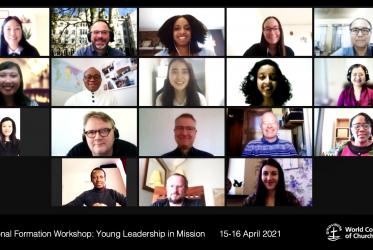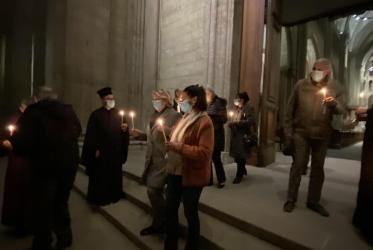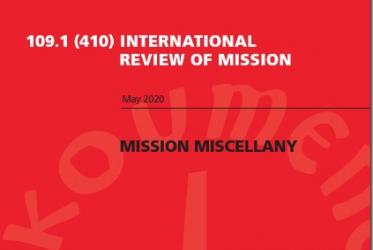Displaying 1 - 20 of 57
Saturday morning prayers invoke movement for truth and righteousness
03 September 2022
The ecumenical spirit at Calvin’s Cathedral
24 February 2021
New student body at Bossey Ecumenical Institute “a source of joy”
14 September 2020
















